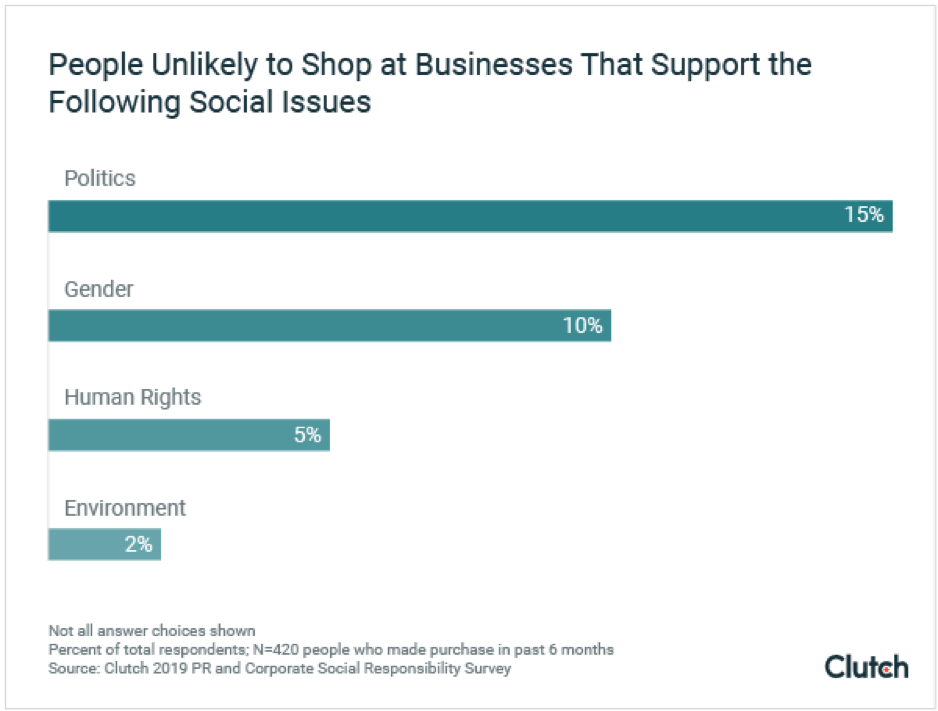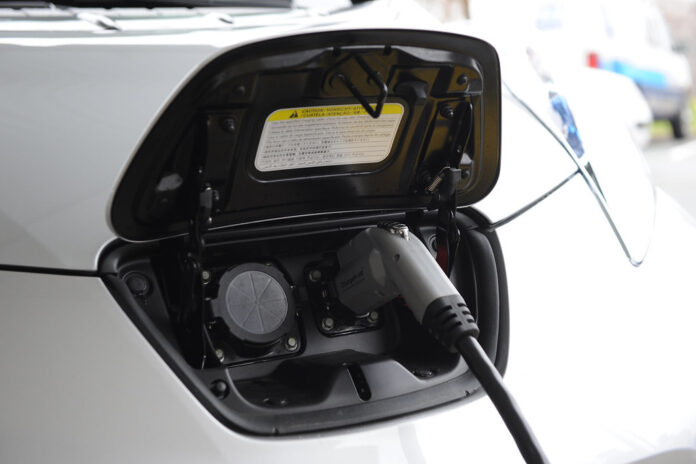Nestlé India Conducts Cleanliness Drives Across Locations On World Oceans Day
Nestlé volunteers worldwide participated in clean-up drives to celebrate World Oceans Day, on June 8, 2019. In India, around 2000 volunteers participated in this initiative which took place in towns near Nestlé India factory and branch locations. The volunteers included Nestlé India employees and their families, NGO partners, distribution partners, suppliers and officials.
Commenting on this unique volunteering initiative, Mr Suresh Narayanan, Chairman and Managing Director, Nestlé India said, ‘World Oceans Day provides a unique opportunity to honour, help protect and conserve our natural resources. On a personal level, I have taken a pledge to reduce plastic waste in my office, home and wherever we as an organization can make a difference. Occasions like these enable us to educate and drive behaviour change across the organization as well as the people associated with it. I am humbled that our partners and colleagues have come together to act as eco-warriors to ensure our neighbourhoods are free from the problem of plastic waste”.
At the clean-up drive, the volunteers were divided into different teams to ensure the systematic collection of waste. At the end of the drive, the collected waste was sent to the processing facilities and disposed of responsibly.
Nestlé India was supported at select locations by its implementation partners Magic Bus India Foundation and India Pollution Control Association (IPCA).
How CSR Can Impact Your Online Reputation
People expect companies across many industries to commit to corporate social responsibility (CSR).
When asked which industries should commit to CSR, respondents answered:
- Food retailers (70%)
- Technology (70%)
- Fashion (65%)
- Health and beauty (64%)
- Restaurant (62%)
In this article, we will explore how CSR can strengthen your company’s online reputation.
We will also take a look at how one restaurant meets the challenge of combining CSR policies with supporting social charitable activities.
Use this article build a CSR strategy that meets customer expectations, builds trust with consumers, and influences buying decisions.
The Importance of Corporate Social Responsibility
At its core, corporate social responsibility (CSR) is a voluntary, self-regulating commitment to sustainable and ethical business practices.
CSR has evolved, though, and in 2019 it also implies a commitment to drive social and environmental change.
The majority of people expect businesses to voice their support for social issues through donations, social media, sponsorships, and events.
As governments fail to address urgent issues such as environmental decline, world hunger, and human rights, consumers increasingly expect businesses to fill the gaps.
According to the Clutch study, three-fourths of consumers believe that large and medium-sized businesses should support social movements. Over half (60%) believe that small companies should also support social movements.
Businesses can no longer afford to skip CSR policies and social cause activities.
What Causes Should Businesses Commit To?
Nearly 60% of consumers think small businesses should support social movements, according to a recent study by Clutch. Yet, more than half of people will likely avoid purchasing from a company that supports issues they disagree with.
As a small business, you may not be in a position to take significant risks by speaking out on social issues. Fortunately, there are ways to minimize the risks by choosing “safe” causes that pair well with your brand’s mission and CSR policies.
For example, reducing your company’s carbon footprint and learning new ways to produce, package, and present your products or services supports environmental causes without getting controversial.
Should you choose to support a higher-risk social cause, consider the per cent of customers you risk alienating.
Politics and gender are the highest-risk social causes.
Fifteen per cent of people (15%) say they’re unlikely to patronize a business that supports political issues, and ten per cent would avoid companies that support gender issues.
If you’re hesitant to commit to a social cause because of the risk, consider hiring one of the top public relations firms to guide your CSR activities.
How CSR Can Build Trust with Customers
Charitable giving and volunteer activities can strengthen your brand’s reputation if people perceive your brand as genuinely concerned about the issues you support.
Aligning your company policies and practices is essential to demonstrate a genuine commitment to CSR.
One brand that demonstrates a well-balanced CSR program of policies, practices, and social efforts is Panera Bread.
Panera’s CSR policies promise customers responsibly-raised, clean food with no artificial preservatives, sweeteners, flavours, or colours. The company also commits to food that’s “raised responsibly,” and sourced from local farms.
Additionally, the company:
- Packages unsold food and donate it to local charities
- Supports non-profit events by donating fresh bakery products
- Participates in a fundraising program
The combination of CSR company policies and similar charitable activities are an excellent example of how businesses can align efforts and policies to prove an authentic commitment.
How CSR Boosts Your Brand Image
When you create sustainable, ethical company policies that go above and beyond government regulations, you build trust with your customers.
Further, when your business supports a cause that resonates with customers, you create a human connection that influences people’s buying decisions.
CSR also provides a way to generate positive press surrounding your brand. According to Reputation Management, this helps build a buffer against the negative press, scandals, or mishaps that may happen in the future.
How to Promote Your CSR
To generate publicity surrounding your corporate social responsibility, your company must promote its activities across multiple platforms, including:
- Blog articles
- Social media campaigns
- Advertising
- Email marketing
- Press releases
Some businesses have in-house staff dedicated to promoting their CSR, and others hire online reputation agencies and experts to manage promotions for them.
Use CSR Build Your Online Reputation
A well-planned corporate social responsibility strategy can influence buying decisions, generate positive press for your brand, and protect your company against future scandals.
 Grayson Kemper is a senior content writer for Clutch, a ratings and reviews platform for B2B marketing and technology services. He specializes in online marketing and emerging technologies research.
Grayson Kemper is a senior content writer for Clutch, a ratings and reviews platform for B2B marketing and technology services. He specializes in online marketing and emerging technologies research.
Views of the author are personal and do not necessarily represent the website’s views.
Thank you for reading the column until the very end. We appreciate the time you have given us. In addition, your thoughts and inputs will genuinely make a difference to us. Please do drop in a line and help us do better.
Regards,
The CSR Journal Team
Miss India pageant criticised for being partial to fair skin
By Annie Banerji, Thomson Reuters Foundation
Organizers of the Femina Miss India beauty pageant came under fire on Thursday for selecting only fair-skinned women, with human rights campaigners saying the contest highlighted the nation’s failure to respect women from all walks of life.
The Times of India newspaper, which belongs to the group that organises the annual Femina Miss India contest, this week published a collage of 30 women, each representing an Indian state — and each fair skinned.
Anti-colourism activist Muna Beatty described Femina Miss India’s selection as a “copy-paste job”, with all contestants looking similar with long, dark hair, and fair skin in line with India’s long-running obsession over lighter skin tones.
But she warned such fair-skin bias could impact the mental health and self-esteem of darker-toned women and girls in India where the contentious issue of the treatment of women has become a nationwide debate reflected at this year’s general election.
“You have youngsters, kids watching this and thinking to themselves ‘if I don’t fit these criteria or this skin tone, then I’m not beautiful’ and … ‘I’m not good enough’,” she told the Thomson Reuters Foundation by phone from Bangalore.
People on social media complained that the contestants did not represent the diversity and potential of Indian women, including southern states where most people are darker-skinned.
Neither the Times Group nor Femina Miss India replied to the Thomson Reuters Foundation’s repeated requests for comment.
Femina Miss India, or Miss India, annually selects contestants to compete in Miss World, one of the four major international beauty pageants alongside Miss Universe, Miss Earth and Miss International.
Criticism of the annual beauty contest, that kick-started Bollywood superstar Priyanka Chopra’s career, comes at a time when the treatment of women in the country of 1.3 billion people faces increasing scrutiny.
India ranks 108 out of 149 countries in gender equality, according to the World Economic Forum’s Global Gender Gap report, faring particularly badly on economic opportunities, while violence against women has dominated headlines.
India has seen a decline in female participation in the workforce in the past decade with World Bank figures showing women made up about 22 percent of the workforce in 2018 compared to nearly 27% in 2005.
The dwindling labour participation rate was feared to have far-reaching implications for India’s economic development and the progress of women’s rights in the often deeply conservative country.
Kavitha Emmanuel, founder of India’s Dark Is Beautiful campaign, said she was not surprised with the pageant selection in a country where a woman is often judged by her appearance and complexion, calling it a “deep-rooted toxic” problem.
“You’re basically saying you need to look a certain way to be valued in life,” Emmanuel said. “We need more platforms that showcase … women as people who are capable, women with a lot of potential, women who can achieve a lot rather than women who look good in this prescribed sort of format.”
Companies Commit to Renewable Energy Goals
Corporate entities account for around two-thirds of the world’s final energy consumption and will continue to account for more than half by 2050, as estimated by the International Renewable Energy Agencyʼs REmade Index under the Clean Energy Ministerial’s Corporate Sourcing of Renewables campaign. As companiesʼ demand for clean energy increases, they have the potential to play an important role in driving investment towards renewable energy goals.
Renewable electricity supply also offers a hedge against the risk of long-term fuel cost inflation. In addition to the benefit of costs below the average grid tariff price, business consumers can also sell the renewable electricity they produce at preferential tariffs, where available.
Corporations set renewable energy goals
Since the mid-2000s, more and more companies in a variety of industries across different sectors have committed to ambitious renewable energy targets and have begun to source renewables to run their operations. By early 2018, more than 130 leading global corporations with operations across 122 countries had joined the RE100 initiative, a network of corporations committed to using 100% clean energy.
Initially, many companies considered the adoption of renewable energy solutions to be mainly an act of corporate social responsibility. Meeting internal environmental and social objectives such as greenhouse gas emission reduction targets, and addressing the growing demand for corporate sustainability from investors and consumers, continue to be key drivers for corporate sourcing.
In recent years, however, significant reductions in renewable energy costs, as well as maturing market and policy environments, have made renewables cost-competitive and attractive sources of energy in their own right. For corporations, the economic benefits of sourcing renewables may also include long-term price stability, security of supply, reduction of energy-related expenses and the possibility of new business opportunities.
Clean energy in India
Clean energy is increasingly making business sense for companies in India. Electricity prices in India are growing steadily, due to a combination of different factors including fuel shortages, infrastructure issues and uneven pricing and regulation from state to state. By contrast, clean energy consumed from own installations or procured via power purchase agreements (PPAs) from a third party generator is already cost competitive compared with electricity tariffs in several states.
For governments, some of the drivers to encourage and facilitate corporate sourcing of renewable energy include compliance
with national and international climate targets, job creation and economic growth through new investment, as well as other
socio-economic benefits.
For most corporations, electricity generation and/or complex power sourcing options are not part of their core business.
Signing a long-term PPA or investing directly in a renewable energy system requires expertise that many companies do not have. In response to rising corporate interest in renewable energy sourcing, several initiatives have been established to recognise and further support the development and pursuit of ambitious renewable energy goals through various sourcing options.
The RE100 campaign, under The Climate Group and CDP, gathers some of the world’s most influential businesses that
are committed to sourcing 100% renewable electricity. Through events and webinars, the initiative seeks to support members in reaching their targets and going beyond them by also engaging their supply chains.
Another successful initiative is the Renewable Energy Buyers Alliance, which brings together buyers, suppliers and policy
makers to identify and remove barriers related to purchasing renewable energy. First established in the United States by
Business for Social Responsibility, the Rocky Mountain Institute, the World Resources Institute and the World Wildlife Fund, the network is now active in Australia, China, India, Mexico and Vietnam.
A similar network, the RE-Source Platform, focuses on the European renewable energy market (at both the EU and national levels) and was launched in 2017 by SolarPower Europe, WindEurope, RE100 and the World Business Council for Sustainable Development.
The potential for corporate sourcing of clean energy in Europe is significant and largely untapped. This is the first multi-stakeholder platform in Europe bringing together the interests of both buyers and sellers, to unlock the potential of new business models, accelerate meeting of clean, affordable renewable energy goals and help combat climate change.
CSR for World Environment Day 2019
World Environment Day (June 5) was bigger this year than ever before. Practically every socially responsible company marked the day with an eco-friendly initiative.
Free pollution check on World Environment Day
On the occasion of World Environment Day, Maruti Suzuki is offering free pollution check and complimentary dry wash for its customers. The offer is valid till June 10, 2019. Talking about the environment friendly initiative, Partho Banerjee, Executive Director, Service, Maruti Suzuki India said, “Dry wash at our dealer workshops help us do our bit to give back to the society. We request over 18 million customers, who visit our workshops every year, to opt for dry wash and help conserve water for our coming generations.”
Dry wash system has helped to reduce the washing time, improve the final wash quality and reduce water consumption. The focus has been in major cities where water scarcity is prevalent. The top six cities – Bengaluru, Delhi, Hyderabad, Pune, Nagpur and Chennai – helped to save maximum water to the tune of 160 million litres in 2018-19.
Recycled laundry bags
To celebrate World Environment Day, co-working space The Daftar decided to reach out to every household in their vicinity through the local laundry wallas. The idea is to encourage everyone to use recycled newspaper in the form of bags instead of burning or dumping them.
The process of burning and dumping newspapers along with other garbage results in a huge amount of air pollution every day. A great way to reduce the toxins mixing in the air is by starting to recycle everything we can.
In making this drive a success, The Daftar bought a large number of paper bags from Mitti Ke Rang, an NGO that works towards the betterment of widowed women by providing them employment in the city. These multi-purpose laundry bags were distributed for free to several housing societies through young volunteers and local laundry services.
Lake revival
The iconic Fatehsagar lake stands as the lifeline of tourism for the city of Udaipur and is also a prime source of drinking water for the locals. The present condition of the lake, with its sinking water storage capacity, made it imperative that urgent steps are taken for the lake’s revival and sustainable management.
Hindustan Zinc, on World Environment Day, has come forward with a pledge to revive the iconic Fatehsagar Lake in Udaipur. The water sustainability initiative in the city of lakes is being undertaken in association with Urban Development Trust (UIT). Under the month long project, Fatehsagar Lake will be desilted by 2 – 2.5 lakh cubic meter, thus paving the way for long term water solution in the region and conserving the local flora and fauna.
Moreover, the city of Udaipur has witnessed excessive dumping of raw sewage into its famous lakes, reports Udaipur Times. The continuous dumping has unfortunately put tremendous pressure on the ecosystem around the lake waters. In order to address the issue of sewage dumping, Hindustan Zinc has set-up Udaipur’s first 20 million litres per day (MLD) Sewage Treatment Plant (STP). The company now aims to treble the capacity of the STPs to 60 MLD, from the present 20MLD, which will treat more than half of the sewage generated by the entire city.
Recycling waste paper
Oxford University Press India (OUPI) has pledged to continue working towards reducing its carbon footprints through its paper recycling initiative. Says Sivaramakrishnan V, Managing Director, Oxford University Press, “OUPI in 2016 formed a partnership with Jaagruti, a private organization working in the field of paper recycling and since then, the organization has recycled all the waste paper in its Delhi-NCR offices. This waste is recycled to produce notepads and A4 paper that are used across OUP India offices. Since 2016, OUP India has recycled over 15 tonnes of waste paper equivalent to saving of 255 trees, 420,496 litres water, 26,280 litres oil & 61,155 KW hours of energy.”
Planting trees
On World Environment Day, the Mahindra Group reinforced its commitment toward the environment with the announcement of #CelebrateDifferently. Mahindra’s new initiative aims to motivate citizens to plant a tree to celebrate the joyous milestones in their lives.
HDFC Bank offers Parivartan Grants to 25 social sector start-ups
In 2013, Sumeet Mohanty, a biochemical engineer from IIT Kharagpur, had taken a trip to a small village in Jharkhand. He was troubled to learn that three children from the village had died on consuming water from a nearby lake that lacked adequate sewage treatment facilities.
The incident inspired him to look for a solution that could be universally implemented, and sparked his interest in clean tech projects in the field of waste-water treatment. After working in the space for a few years, he set up Phycolinc Technologies, a start-up that uses algae to treat wastewater, be it industrial or domestic sewage, thereby restoring lakes and other water bodies. The solution is organic and can be easily implemented.
Phycolinc Technologies is one of the 25 start-ups, who are recipients of HDFC Bank’s #Parivartan Grants. #Parivartan Grants aim to help the start-ups working in the social sector to offer unique solutions that bring a sustainable change. In the first phase, the Bank has disbursed INR 10 crores to start-ups and incubators in India.
Parivartan, which means change, is HDFC Bank’s endeavour to bring about a sustainable change in society. The change is not just about supporting various CSR initiatives, but also encouraging the entrepreneurial eco-system in India under CSR to create long-term solutions to social issues, be it environment, Waste Management, health and well-being. Parivartan Grants have been offered not just to start-ups based in Mumbai, Pune and Delhi, but also from Jamshedpur, Kalahandi in Odisha, Kochi, Tiruvanathapuram, Hyderabad to name a few.
“Parivartan Grants is our commitment to bring long-term positive change in the society we operate in. We are happy to announce that the start-ups identified for this grant are in line with one of our core values of the Bank – Sustainability. Through our dynamic start-up fund, we will scale up on a consistent basis and invest in ideas that build value. This is the first phase, and we will continue to work with our partners to build a strong pipeline of social start-ups whom we can support,” said Ashima Bhat, Group head, CSR, HDFC Bank.
Commenting on the grants to start-ups, Smita Bhagat, Country head – Government, e-commerce and start-ups said, “Start-ups today are reimagining and reshaping the world we live in. Those working in the social sector are doing commendable work in the endeavour to change the lives of millions of Indians. Parivartan Grants is one way of offering our support and encouragement in this journey.”
The UK Now Has More EV Charging Locations Than Gas Stations
According to various reports, the United Kingdom now has more electric vehicle (EV) charging stations than it does gas (or shall we say petrol, or filling) stations, boasting 8,646 EV charging locations compared with 8,400 gas stations and reflecting a growing EV footprint in the U.K. The data revealing this milestone comes from Zap Map, an entity which claims to be the U.K.’s leading charging point platform. This news marks the first time in the country’s history that EV charging stations have outnumbered gas stations. So long to diesel?
This is quite a remarkable milestone because in many ways Europe was slow to recognize EVs as a more sustainable form of transportation until quite recently. For several decades, Europe’s go-to for efficient transportation were cars with small capacity diesel engines, which attained great mileage per gallon compared with gasoline engines, and consequently accounted for in excess of 50 per cent of vehicle sales in Europe.
However, with policy driving change across the pond with aggressive goals for zero-emissions vehicles – commensurate with improving EV technology and a growing number of EV choices for consumers on the market – diesel’s dominance is slowly, but consequently, on the way out.
Autocar reported last year that new car sales in the U.K. saw demand for diesel fall by 15.7 per cent in one year between March 2017 and the same month 2018 while in the same period, EV demand increased by 5 per cent.
In recent years there has been a realization that diesel-powered cars are not as environmentally friendly as they had been made out to be. Despite the unquestionable fuel efficiency of diesel engines, carcinogenic particulates from them have diminished air quality in urban environments throughout Europe. No doubt too, VW’s emissions scandal in the USA brought to the public’s attention the deleterious effects of nitrogen oxide emissions, landing another blow to diesels’ reputation.
EV charging stations could see more customers very soon
Going forward, the policy will likely play a significant role in promoting EVs over diesel too. For example, Autocar reported the U.K. government increased the new vehicle tax on diesel vehicles as of April 2018, unless new cars met the latest Euro 6d air quality standards – which none of them did at that time.
On top of this, the future vision for the U.K.’s transportation fleet turns away from the internal combustion engine altogether. In the summer of last year, the U.K. government unveiled its Road to Zero strategy. Edie.net detailed how under this initiative a £1.5 billion investment into EV research, development and infrastructure will help phase out gasoline and diesel sales by 2040.
Part of the Road to Zero plan included a recognition that a lack of EV charging infrastructure would be one of the top impediments to widespread adoption of EVs in the country. However, as reported here, Ben Lane, Zap Maps’ founder says, “the public and private sectors are now investing heavily in the U.K.’s EV charging infrastructure to ensure that there are sufficient charging points to support the growing electric fleet.”
Demand for EVs remained robust in the U.K. for the entirety of 2018. According to Air quality news.com, the EV market grew by a record 19 per cent in 2018 with 59,911 new plug-in electric cars registered in the U.K. Plug-in hybrids accounted for the bulk of the market, with 74 per cent of registrations.
Now the private sector is helping to drive EV adoption in the UK
In addition to public policy, the private sector forms an important part of the equation as well and is notably attracting nontraditional EV players, who are perhaps seeing the writing on the wall. For example, last year oil giant BP acquired Britain’s Chargemaster, and the energy company now says it manages the country’s biggest public charging network.
Charging infrastructure growth appears to be a growing global trend too. AP reports in the forecast period of 2019-24, the market is expected to grow by 38.45 per cent – with China currently leading the EV charging market.
Source: Triple Pundit


















